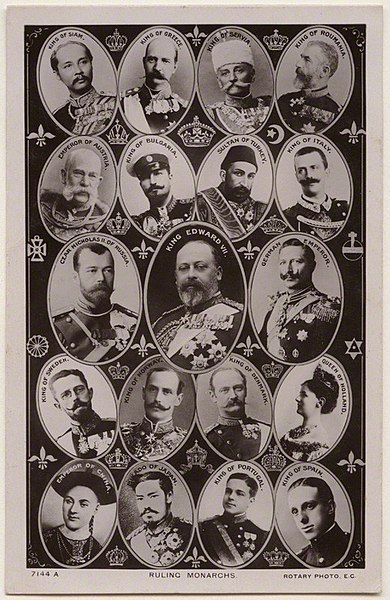An elective monarchy is a monarchy ruled by a monarch who is elected, in contrast to a hereditary monarchy in which the office is automatically passed down as a family inheritance. The manner of election, the nature of candidate qualifications, and the electors vary from case to case. Historically, it was common for elective monarchies to transform into hereditary ones over time or for hereditary ones to acquire at least occasional elective aspects.
The Republic at the Zenith of Its Power. Golden Liberty. The Royal Election of 1573, by Jan Matejko
Offering of the Mexican crown to Maximilian of Habsburg.
A monarchy is a form of government in which a person, the monarch, is head of state for life or until abdication. The political legitimacy and authority of the monarch may vary from restricted and largely symbolic, to fully autocratic, and can span across executive, legislative, and judicial domains.
The Weld-Blundell Prism, inscribed with the Sumerian King List
King George III of the United Kingdom, portrait by Allan Ramsay, 1762
King Salman of Saudi Arabia is an absolute monarch.
Postcard of ruling monarchs, taken in 1908, between February (accession of King Manuel II of Portugal) and November (death of the Guangxu Emperor)






